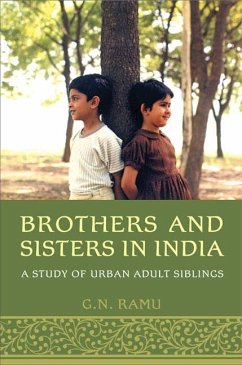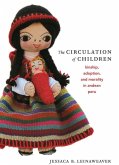Indian society is urbanizing rapidly, and while the level of urbanization and the values associated with it have yet to correspond with those of Western societies, the traditional ethos governing sibling relations is becoming increasingly less relevant to contemporary Indian brothers and sisters, especially those who live in urban areas. G.N. Ramu explores this phenomenon in Brothers and Sisters in India, the first detailed study of adult siblings in contemporary Indian society. Based on sixteen months of field work in Mysore City and over three decades of research in this area, Ramu's study focuses on the three sibling types (fraternal, sororal and cross-sibling), and examines the frequency of interaction between siblings, the level of mutual assistance, and the incidence of conflict and strains in routine relations. Ramu's findings are significant, and differ substantially from what one typically finds in research on family and kinship patterns in contemporary India. The brothers and sisters investigated in this study, together demonstrate that the nature and function of kinship ties in India are undergoing striking changes - changes which may converge with similar patterns found in Western societies.
Bitte wählen Sie Ihr Anliegen aus.
Rechnungen
Retourenschein anfordern
Bestellstatus
Storno








